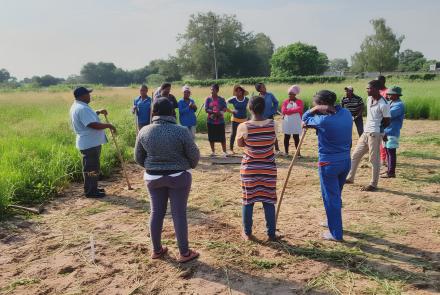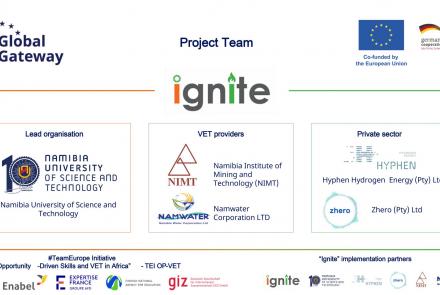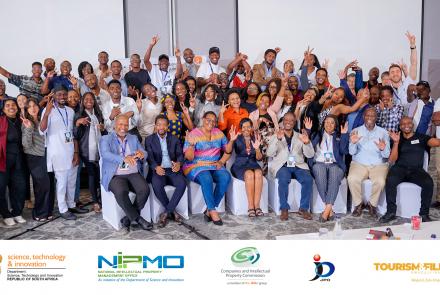NUST BRIEF:Ecology Custodian Day and the Indigenous People’s Knowledge Fair 2025
Indigenous Knowledge Fair Concludes with Ecology Custodian Day
At N/a’an ku sê Lodge, a vibrant exchange of wisdom, policy, and culture marked the close of the Indigenous People’s Knowledge Fair 2025.
Held on 18 September, Ecology Custodian Day brought together more than 50 Indigenous knowledge holders from Namibia, South America, Canada, Malaysia, Kenya, Tanzania, South Africa, and other countries, alongside government leaders, academics, and civil society partners.
Themed “Custodians of Ecology: Shared Worlds, Shared Futures”, the event highlighted how ancestral knowledge can inform modern approaches to biodiversity conservation, climate action, and human–wildlife coexistence. It also explored how digital platforms, and inclusive governance can safeguard and transmit Indigenous heritage to future generations.
Leadership Voices Call for Action
Delivering the keynote address, Vice-President Lucia Witbooi emphasised the need for meaningful engagement between Indigenous custodians and policymakers: “We must move from exploitation to custodianship, from exclusion to inclusion, and from dominance to dialogue. Let this gathering inspire practical actions that resonate in classrooms, conservancies, and communities”.
NUST Vice-Chancellor Prof Erold Naomab commended the collaborative spirit of the Fair and reaffirmed the University’s role in advancing sustainability: “Traditional ecological knowledge is a living resource essential to our collective future. NUST remains committed to transdisciplinary research and to ensuring that Indigenous wisdom informs sustainability”.
Representing Hon Sanet Steenkamp, Minister of Education, Innovation, Youth, Sport, Arts and Culture, Ms Lovisa Immanuel, Director of the Directorate of Research, Science and Technology, stressed the value of Indigenous wisdom in shaping modern systems: “Indigenous Knowledge Systems are not only a bridge between past and present but also a source of innovation for education, technology and governance. Traditional wisdom strengthens identity and resilience, inspiring solutions that align with Namibia’s development priorities. We commend NUST and the UNESCO Chair in Digital Technology Design with Indigenous People for creating a platform where elders, youth, researchers and policymakers can co-create strategies for biodiversity protection, human–wildlife coexistence, and the responsible use of digital tools to preserve ancestral heritage”.
A Fitting Finale
Running from 5–18 September, the Indigenous People’s Knowledge Fair, united indigenous knowledge holders on a journey with lasting memories of stories, cultural ceremonies, and conversations on digital preservation of ancestral heritage and indigenous people’s rights. The closing event reaffirmed the strength of partnerships formed between the Indigenous participants, who handed over a collective manifesto, anchored in their lived experiences rooted in ancestral wisdom, ecological stewardship, culture and spirituality, sharing a respectful vision for Namibia. In dialogue with stakeholders present concrete examples of successful models of integrating traditional knowledge in formal education, health and conservation systems were shared. Cultural validations of digital and other technologies were discussed. The event ended with a shared commitment to honour cultural legacies, embrace stewardship and weave inclusive and just futures together. The organisers are confident that the momentum generated at the Fair will culminate in future research collaborations and manifestations of policy dialogues grounded in Indigenous-led custodianship.





